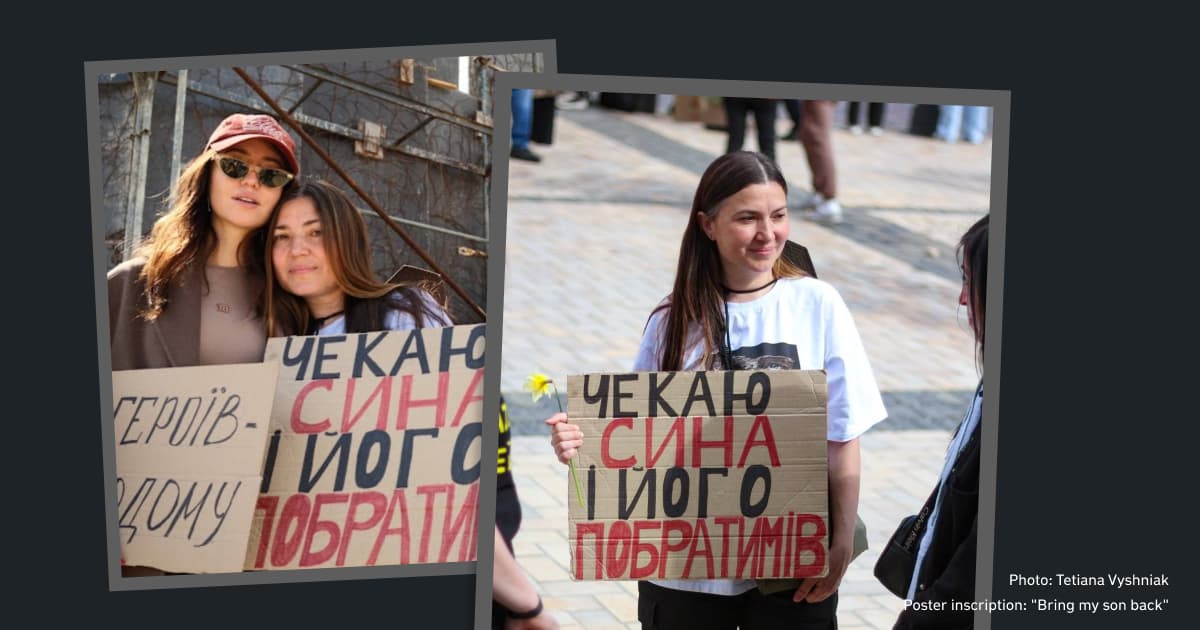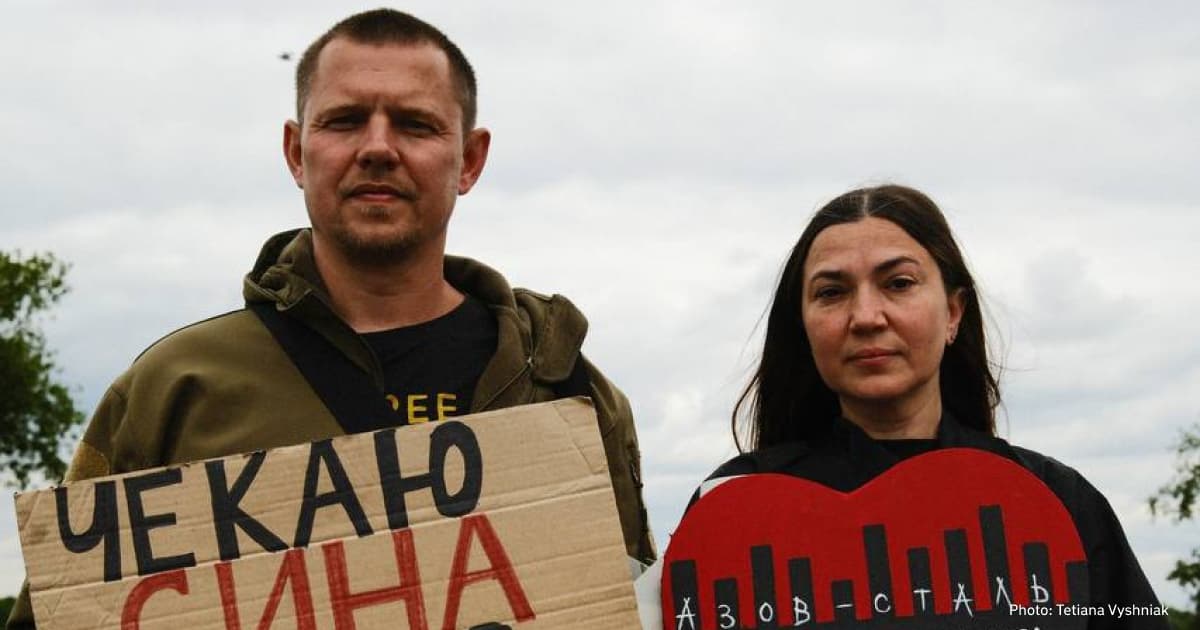Two years in Russian captivity: how relatives of defenders fight for their release
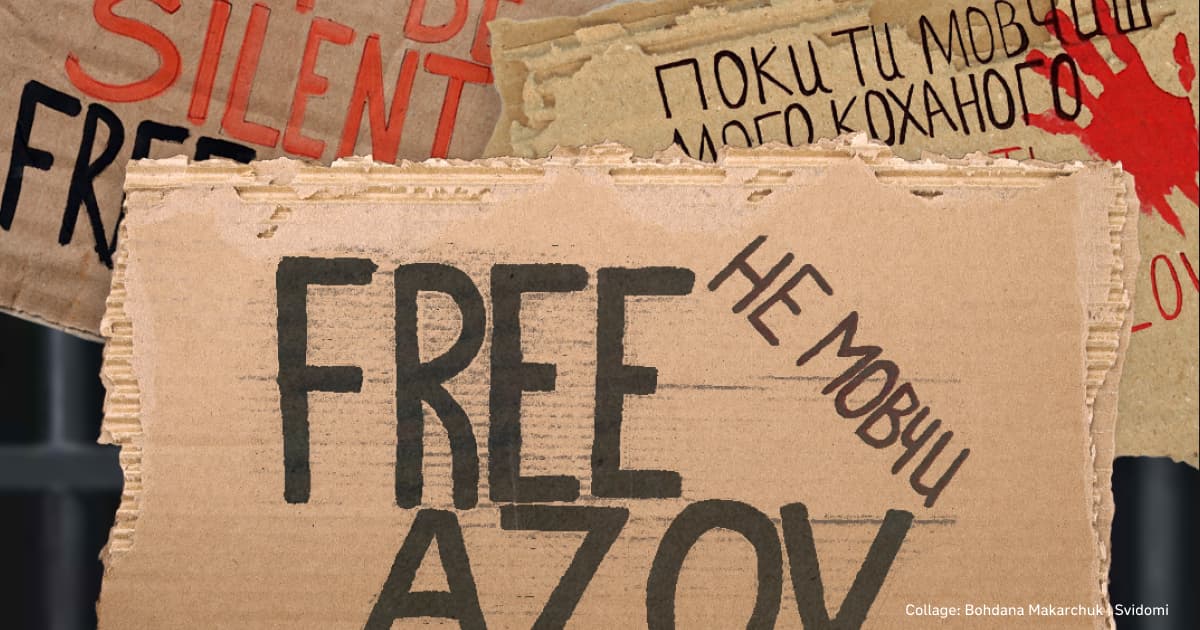
It will be two years since Russia fully occupied the Ukrainian port city of Mariupol on May 20. In the spring of 2022, Mariupol saw some of the fiercest fighting. Soldiers from the Ukrainian National Guard, the 36th Marine Brigade, border guards and police defended the city.
The Russians quickly surrounded the city and razed it to the ground, attacking it with various types of weapons, including aerial bombs, even though there were civilians in the city as well as military personnel. The exact number of people killed in the city is currently unknown. It is known to be in the tens of thousands.
At the end of March 2022, the Ukrainian military took up defensive positions on the Azovstal Iron and Steel Works territory. The defence of the plant lasted until mid-May when Ukraine's top military and political leadership ordered the end of the defence of the plant to save the lives of its personnel.
On May 16, 2022, the so-called evacuation of the soldiers from the plant began. In reality, they surrendered. The Russians are holding Ukrainian soldiers both in Russia and in the temporarily occupied part of the Donetsk region. In June 2022, President Volodymyr Zelenskyy said that Russia had captured more than 2,500 Ukrainian soldiers from the Azovstal plant after the battle for Mariupol.
Soldiers released as part of an exchange between Russia and Ukraine have reported torture and lack of proper food and medical care. On the night of July 29, 2022, the Russians carried out a terrorist attack in one of the barracks where the prisoners were being held in Olenivka, in the temporarily occupied part of the Donetsk region. There is no precise information about what happened. According to Russian reports, more than 50 Ukrainian soldiers were killed and over a hundred wounded.
At present, several thousand soldiers are being held in Russian captivity, including more than 900 members of the Azov National Guard Brigade.
Svidomi tells the stories of two Azov fighters currently in Russian captivity and whose relatives are fighting for their release.
"I was scared when I realised it was captivity"
Tetiana Vyshniak is the mother of Artem, an Azov Brigade soldier who has been in Russian captivity for two years (his surname is not being used for security reasons — ed). She says that her son has been honest and fair since childhood and used to give his mother small pleasures, such as flowers. As a teenager, he studied Ukrainian history and law. The woman cannot say that Artem has always wanted to become a soldier because his preferences kept changing. When the Revolution of Dignity began in Ukraine in the autumn of 2013, he actively followed the events. In 2015, he entered college and started to engage in social activities.
When Tetiana's son turned 18, he wanted to join the Azov Regiment, but his parents asked him to wait a year before making a decision.
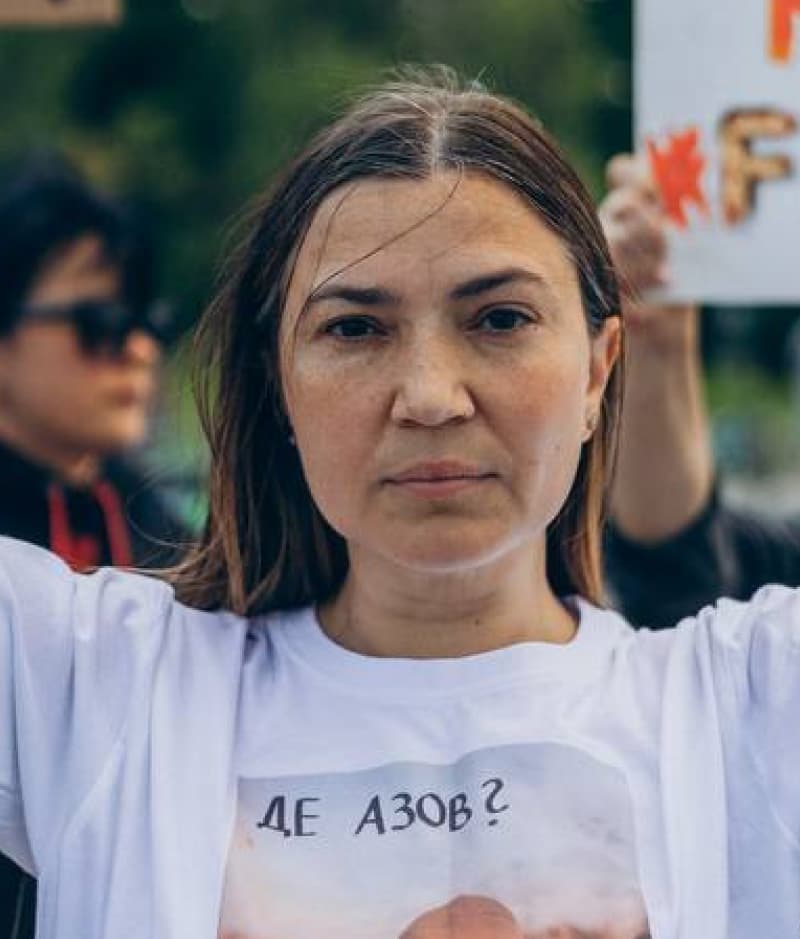
"At the age of 19, without asking, he said he was going to join. His eyes showed so much determination that I didn't even think of trying to talk him out of it. He completed the young soldier's course and joined the Azov Regiment,"
says Tetiana Vyshniak.
"Artem chose the Azov regiment (today it is a brigade; the difference between a brigade and a regiment is the number of soldiers — ed.) because of the motivation and dedication of the soldiers.
The last time Tetiana Vyshniak saw her son before Russia's full-scale invasion of Ukraine was at the end of 2021.
"My son used to go on holiday on his father's birthday at the end of November. He was supposed to stay with us for two weeks but fell ill, and his leave was extended. On December 6, 2021, we put him on the train, and he left," said the soldier's mother.
Artem warned his family about the possibility of a full-scale Russian invasion long before it happened. When Tetiana asked her son about the emergency kit, he replied: "You should have had it since 2014."
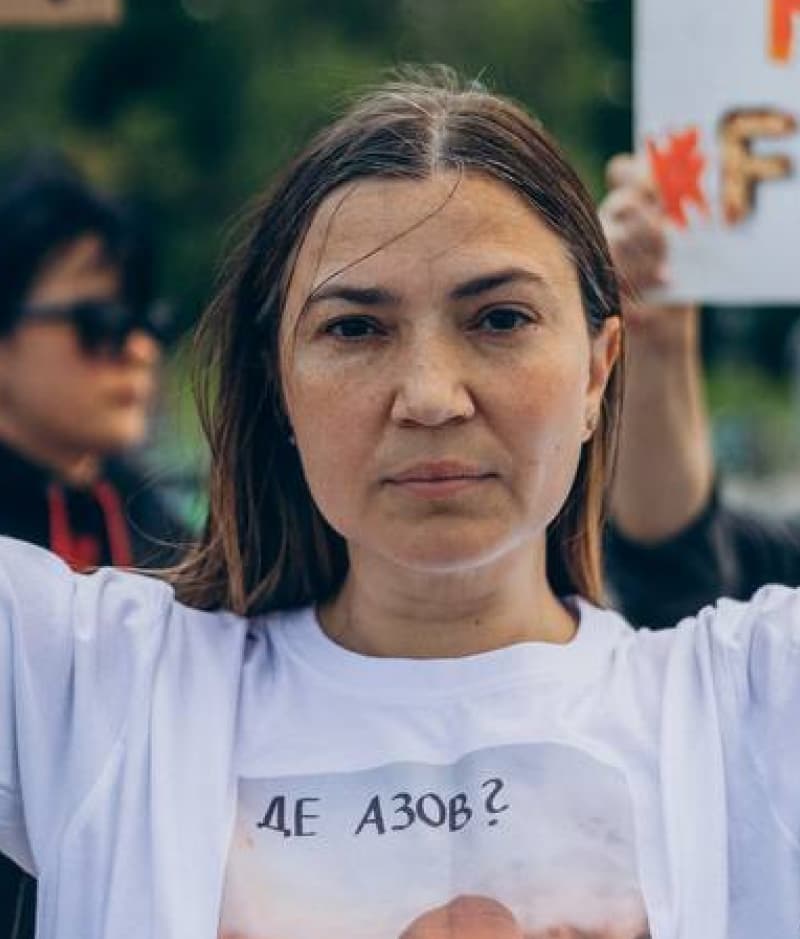
"On the first day of the full-scale invasion, Artem called us. When I asked him what we should do, he told his father to go to the military registration office because the military would not 'take us out' on their own. Either the Russians will take us, or we will take them. He told me to help in any way I could,"
the woman said.
While in Mariupol, Artem rarely wrote to his family because of problems with the phone service. He mainly wrote "+" or "alive" to his family. Sometimes, his fellow soldiers informed his family about Artem's condition, and sometimes, he told them about the condition of those soldiers who came from the same town, Brovary, Kyiv region.
"They always got together in this way. If someone could get in touch, he would tell one person about everyone he knew," says the soldier's mother.
The last time she heard her son's voice was on May 9. The day before, on May 8, Ukraine celebrated Mother's Day. That day, Artem called his mother to congratulate her on the holiday. On May 17, 2022, in the evening, he tried to contact Tetiana in the messenger, but it did not work. So he wrote to her that he would not be in touch for a long time, asked her not to worry, and wrote that he loved his parents and was proud of them.
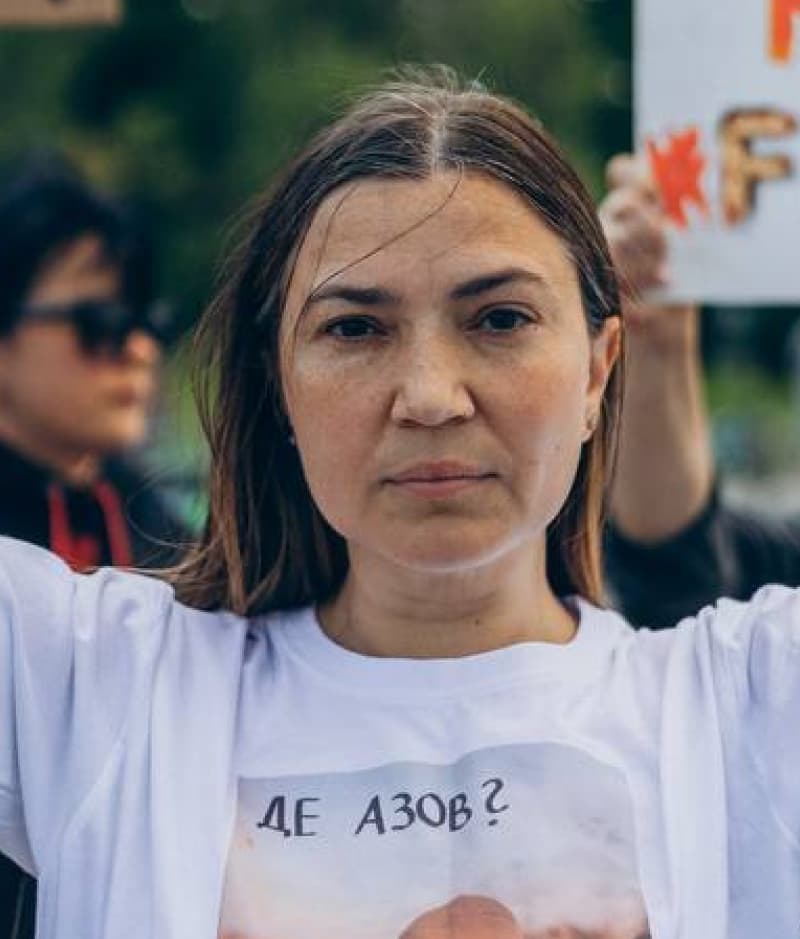
"When we found out that they had been ordered to stop defending Mariupol and that the evacuation was taking place, I was scared because I knew it was a captivity. It was frightening. I thought they would be taken to a third country, but no miracle happened. Yes, it was the only way to save the soldiers' lives at that time. But I could not accept it calmly,"
says Tetiana.
"My son was sentenced illegally"
The woman says she had a nervous breakdown after her son was captured. She and the families of other soldiers went to rehabilitation.
"We came back from rehabilitation on July 29, and in the morning, we heard the news about the terrorist attack in Olenivka, when Russia killed our servicemen (more than 50 people were killed and more than 100 were injured — ed.) My son was not among the names of the dead (Russian propaganda channels published lists of the dead that day — ed. But no one answered whether he was in that barracks. It was only in September 2022 that I heard from the exchanged soldiers that he was alive," says Tetiana Vyshniak.
The International Committee of the Red Cross only contacted her once, a month after the attack in Olenivka. The woman was asked if she knew the whereabouts of her son.
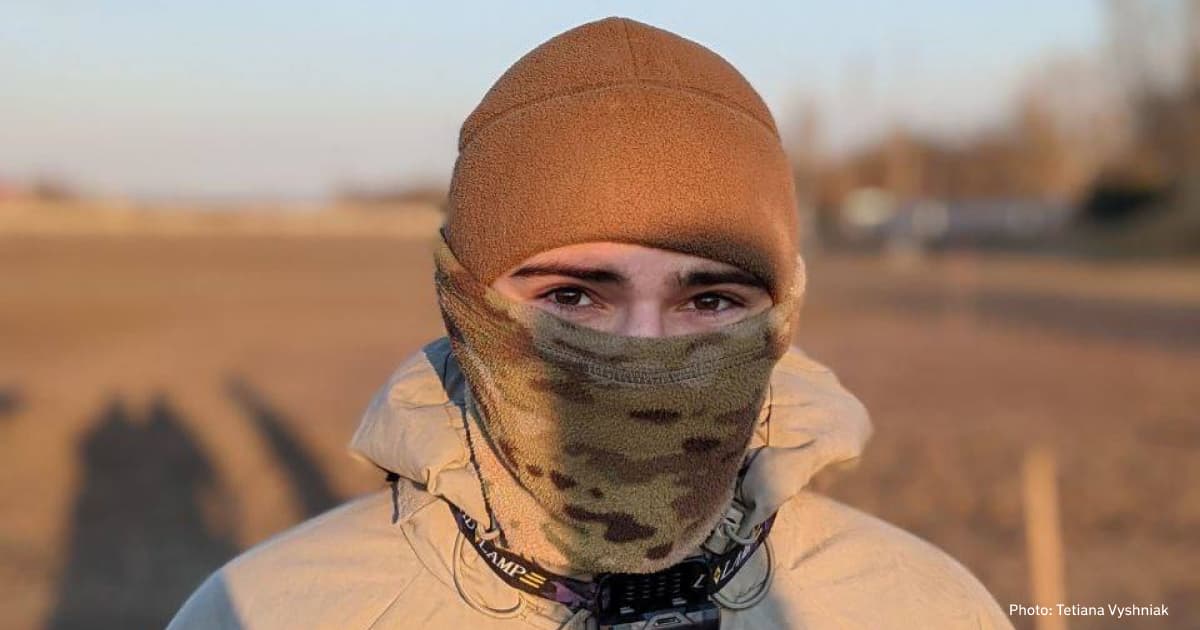
"I can only find out about my son from those who have been exchanged. So, on April 23, 2023, I managed to talk to a person who was in the same cell as Artem in the Donetsk detention centre. In May of that year, I discovered my son was still there. He was alive; we did not see him, but we heard him from the neighbouring cells," said the soldier's mother.
The last time her son's fellow soldiers were exchanged was on May 6, 2023 (prisoner of war exchanges between Russia and Ukraine continued after that, but the Azov soldiers were not returned — ed.) At the same time, Russian courts are trying Ukrainian prisoners of war (Svidomi writes about these cases every week in the Kremlin's Prisoners Digest — ed.) The Russians are sentencing prisoners of war to long terms of imprisonment — more than 20 years. Some are sentenced to life imprisonment.
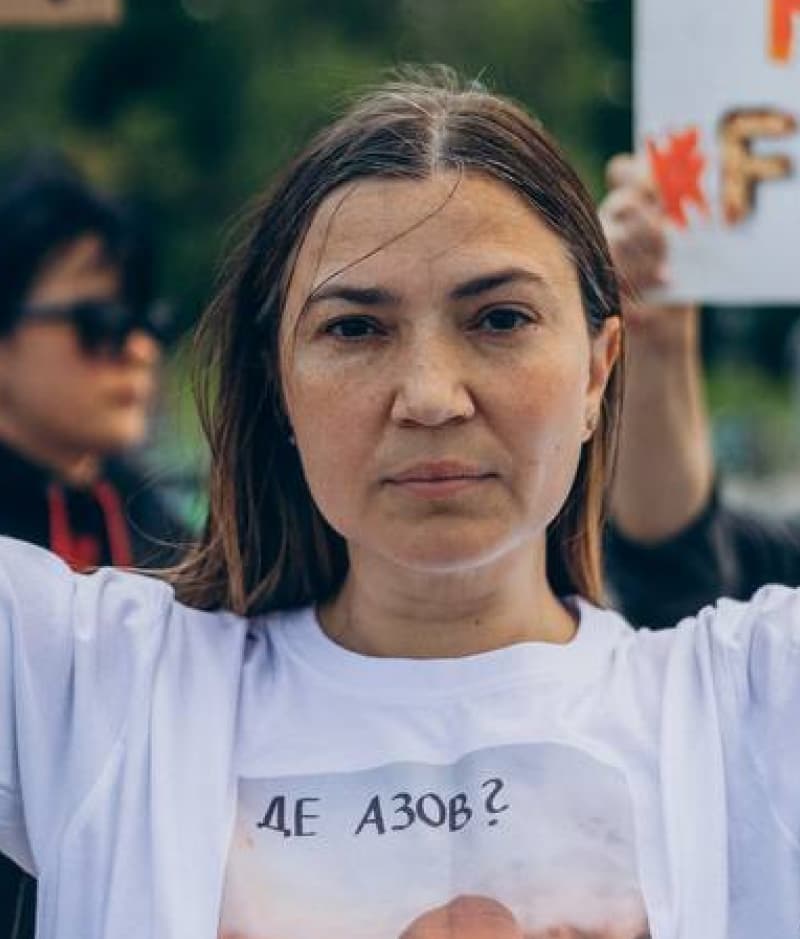
"In March 2024, I learned about my son's trial. He was sentenced to 22 years! For what? For defending his country? What is the whole world looking at? I do not believe that everyone can do nothing. Russia has violated the Geneva Conventions. They do not have the right to try prisoners (According to international humanitarian law, it is forbidden to hold trials of military personnel for taking part in hostilities — ed.)”,
said Tetiana.
Tetiana Vyshniak is convinced that the issue of prisoners of war and those illegally sentenced by the Russians should be raised on international platforms, in particular at the Global Peace Summit that Ukraine will host in Switzerland in June.
"This issue should be raised separately because Russia already believes that they are not prisoners but convicts. This should be the number one issue," says Tetiana.
Every Sunday, the soldier's mother goes to peaceful rallies to support prisoners of war. These actions are held every week on weekends in many cities of Ukraine to remind people about prisoners of war.
"The rallies are a reminder to everyone who makes our lives possible. We want society to see and know that the soldiers are still in captivity. The whole world should hear them. We need to talk about them. This is a chance to wait for their release from captivity," stresses Tetiana Vyshniak.
"If Bohdan had not convinced us to leave, we would have died"
Another Azov fighter captured in May 2022 is Kateryna Yefimenkova's fiancé, Bohdan (the soldier's surname is withheld for security reasons — ed.) The girl says she and her fiancé met in 2011 as teenagers. They are both from Mariupol.
"We played the same computer game. We went out together in the same group of friends and even dated when we were teenagers. But the relationship didn't work out. However, he did not give up and wrote me messages regularly," she says.
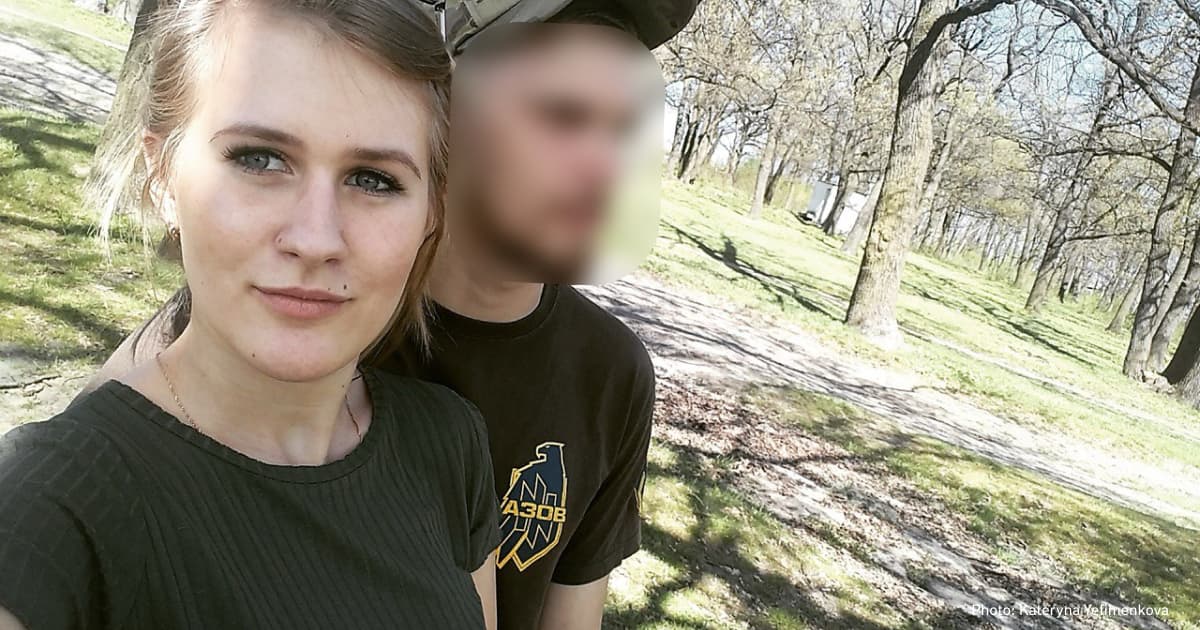
Later, Kateryna and Bohdan started communicating again at a more conscious age. By then, her fiancé was already an Azov fighter. He joined Azov in 2015. However, he failed to get there at the first attempt.
"During the training course for young fighters, he injured his knee. But he stayed to do the course again," says Kateryna.
Bohdan's family and friends were surprised by his decision to join the army.
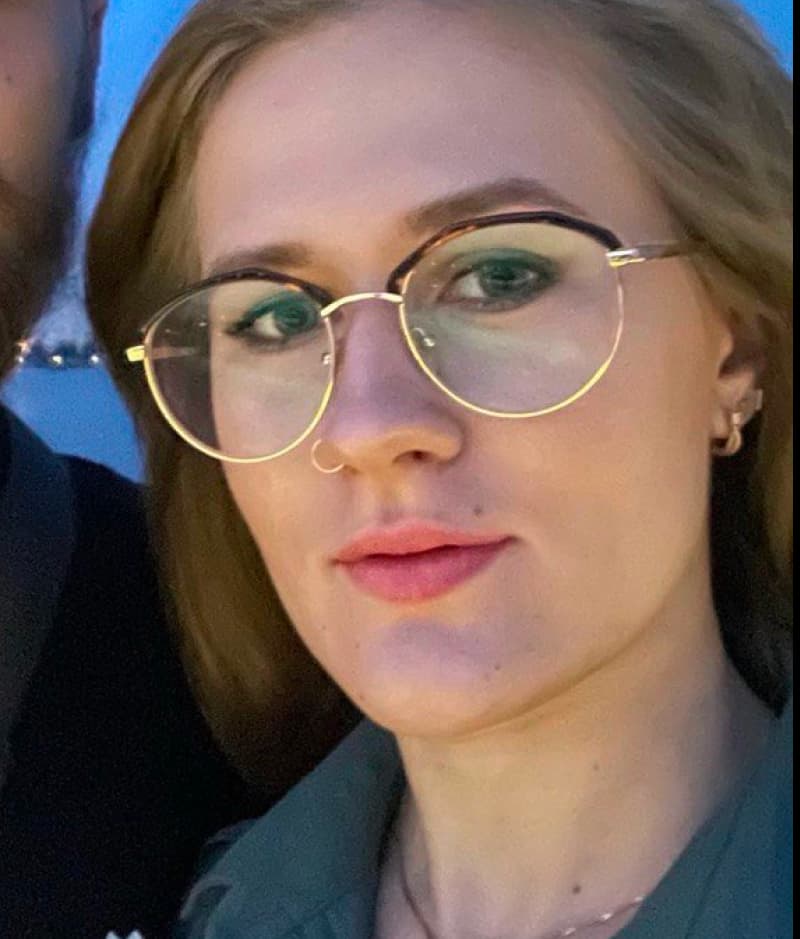
"When I saw Bohdan in uniform, I was shocked. We might think that military men are some kind of men without feelings. But Bohdan is not like that. He is very kind and caring. Even his mother was surprised that he decided to join the army. Bohdan just called her and told her that he had decided to join Azov,"
says Kateryna Efimenkova.
Bohdan is not the only man in the family to join the army since the Russian aggression began. In 2014, his godfather also volunteered. Despite being seriously injured in the back, the man is still defending the country.
"Bohdan is a heartfelt and honest person. It is difficult to influence him. You can't change his mind if he thinks it's the right thing to do. I think this trait makes it worse in captivity. A fighter in the same cell as him told me that sometimes you have to lie to get fewer beatings. But Bohdan does not lie," says the fighter's fiancée.
Kateryna says she has always been proud that her fiancé is a soldier. But it was difficult for her as a girl because Bohdan was often away from home.
In 2021, when the media began to report that Russia was massing troops on the border with Ukraine, Kateryna and Bohdan discussed the possibility of a full-scale invasion.
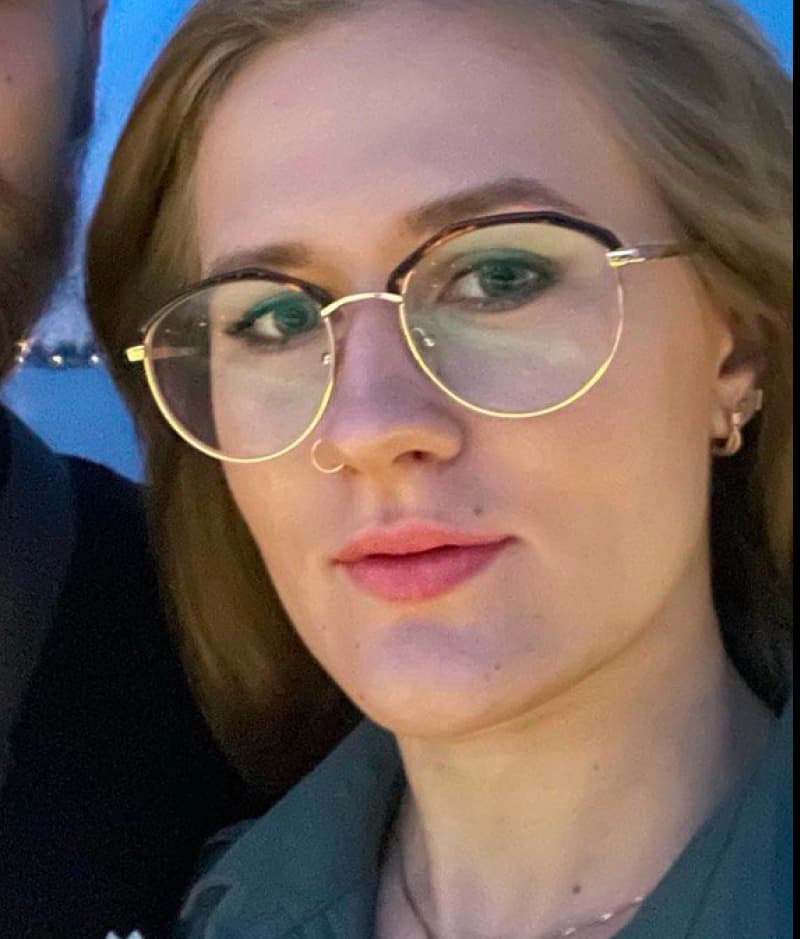
"I believed there would be a full-scale invasion, but Mariupol would not be destroyed. And Bohdan said no, there would be no full-scale invasion. But if Russia decides to do that, Mariupol will turn into Grozny (now the capital of the Chechen Republic. During the war, the Russians actively attacked the city with various weapons — ed.). The city was practically razed to the ground,"
says Kateryna.
A week before the start of the full-scale invasion, Bohdan suggested that his fiancée leave the city for western Ukraine "for a holiday". When she asked him why she should leave Mariupol, Bohdan did not give her a straightforward reason.
"All week, Bohdan insisted that I leave. I talked to my parents all the time. We had an agreement that we would meet at their house in case of a connection failure. I cried all week because I knew intuitively that these were my last days at home," she says.
Kateryna Yefimenkova and her family left Mariupol on the first day of the full-scale invasion.
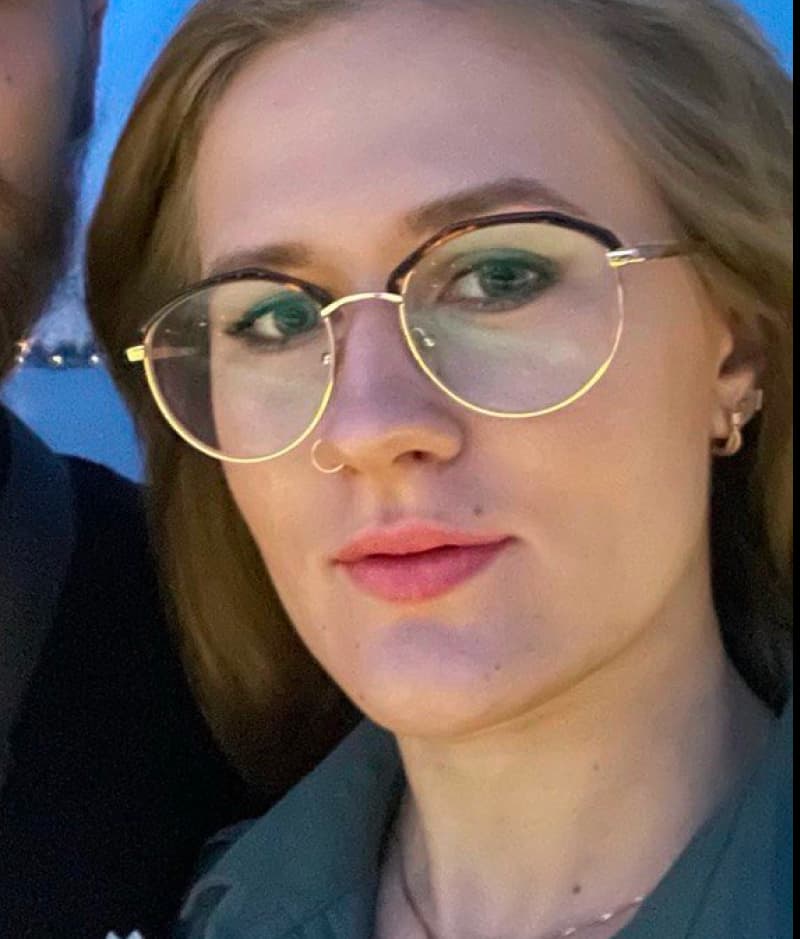
"If Bohdan hadn't convinced us, we would have all died. There were several direct hits on the multi-storey building where we lived with Bohdan. My parents' house was completely destroyed,"
she says.
During Mariupol's defence, Bohdan called Kateryna only once. The call lasted up to two minutes. From time to time, he would write to say he was alive and ask her to send photos of what she was eating.
"He asked me to send photos of food because they had nothing to eat. He kept writing that he loved me and always had. It seemed like he was saying goodbye; it was tough," says Kateryna.
Kateryna learned from the reports that her fiancé had suffered serious injuries, but despite the lack of medical care, Bohdan continued to work.
"The International Committee of the Red Cross cannot guarantee the safety of the prisoners"
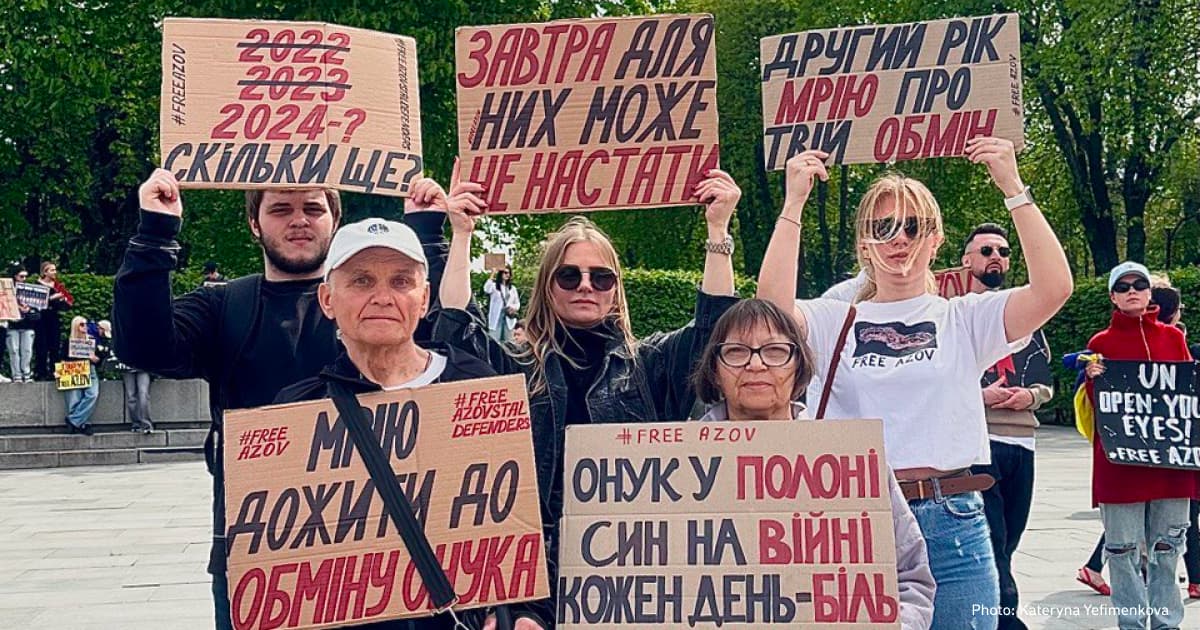
Kateryna Yefimenkova says that she was delighted when she heard that the Azovstal defenders were leaving the plant. She thought it would save the soldiers' lives. She had no idea that the soldiers would have to endure beatings, lack of normal food and the terrorist attack in Olenivka.
"At that time, the military wives had a common chat room where we exchanged information. Some men wrote to their wives that their captivity would last two months. I did not receive any such messages. But at that moment, I naively thought that this was the way to save them. The terrorist attack in Olenivka showed me the reality," she says.
During his captivity, Bohdan called Kateryna once. He told her where he was and that he weighed 50 kilos. He was not injured during the attack in Olenivka. The next day, after Bohdan's call, representatives of the International Committee of the Red Cross called Kateryna and said that "the soldier was under their protection".
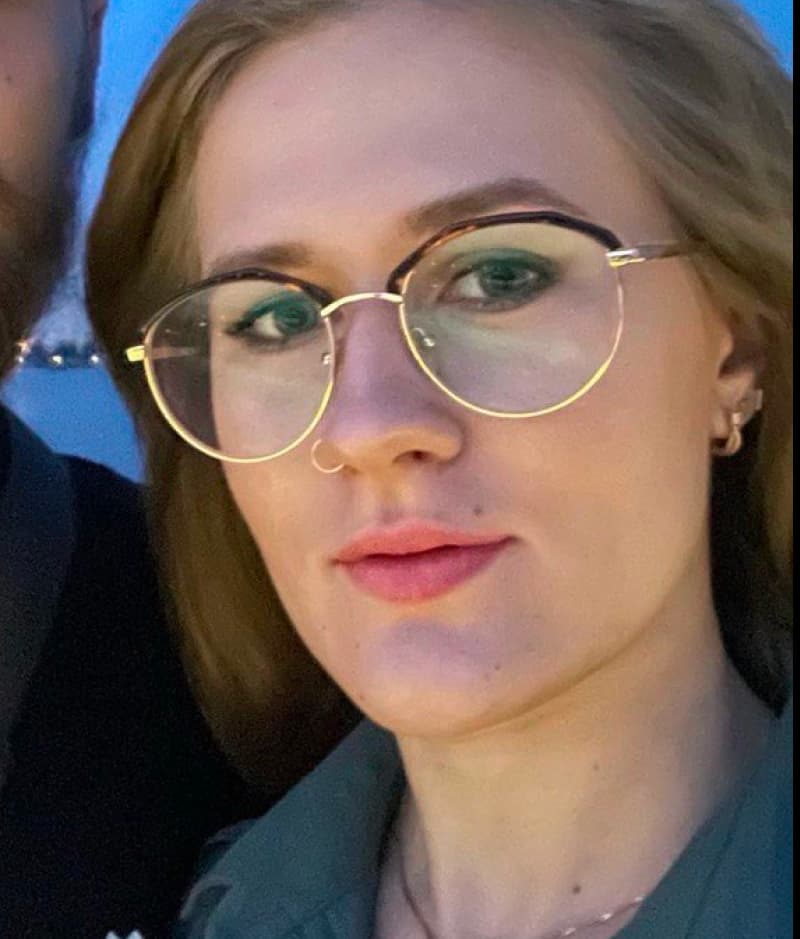
"As you can see, the Red Cross cannot provide the boys with safety, communication with their families or medical care,"
says Kateryna.
In May 2023, Bohdan's fellow prisoner, who shared a cell with him, returned from captivity. He told Kateryna about her fiancé's condition — that he was still underweight and being tortured. She passed on the information about the torture to international organisations, including the ICRC, but received no response.
Today, like Tetiana Vyshniak, Kateryna Yefimenkova goes out to support prisoners of war.
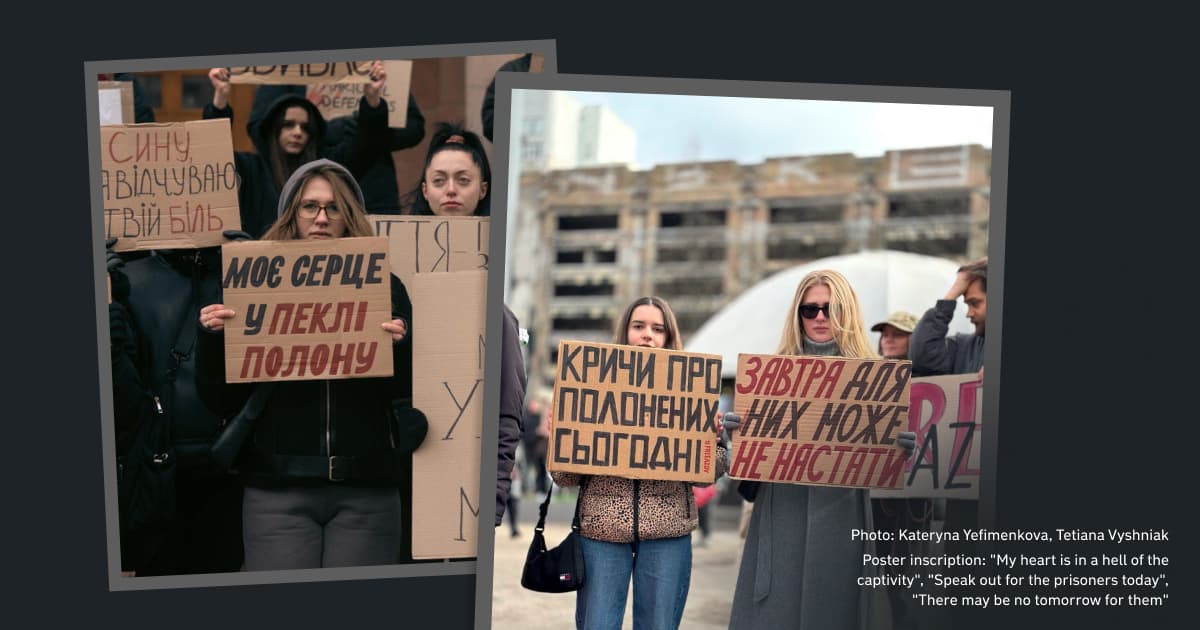
"The boys are in real danger. We have to talk about them all the time because, at any moment, one of them could die there. We go to the rallies to raise awareness. If we don't remind people that our relatives are in captivity, there is less chance of seeing them alive," says Kateryna.

